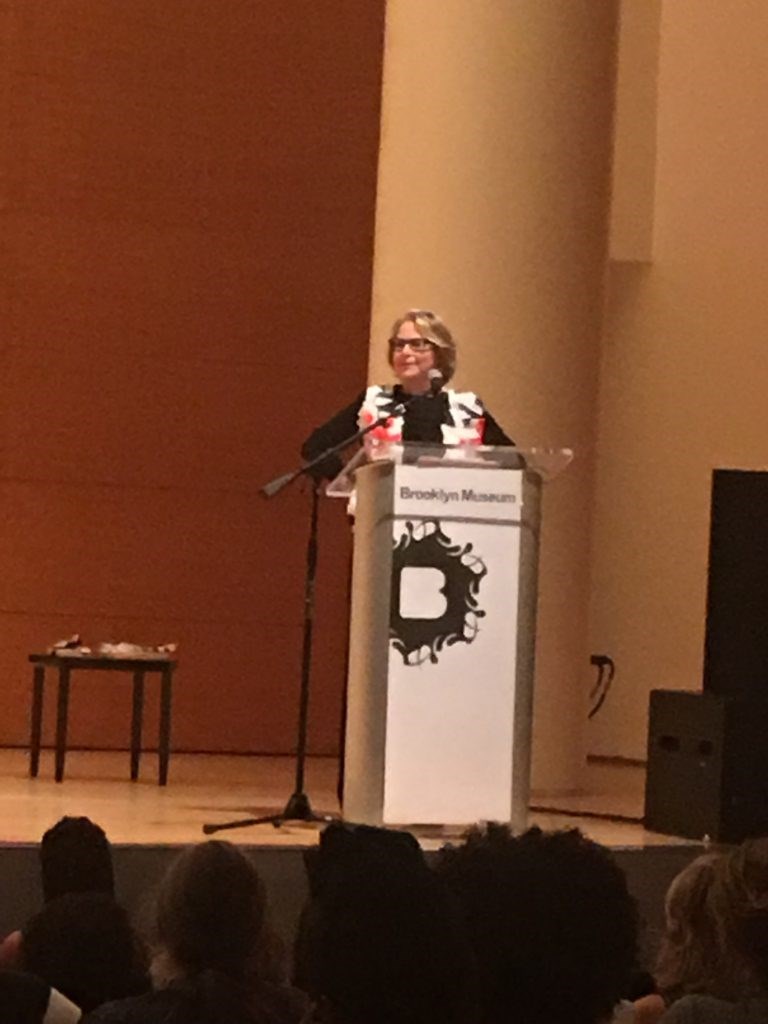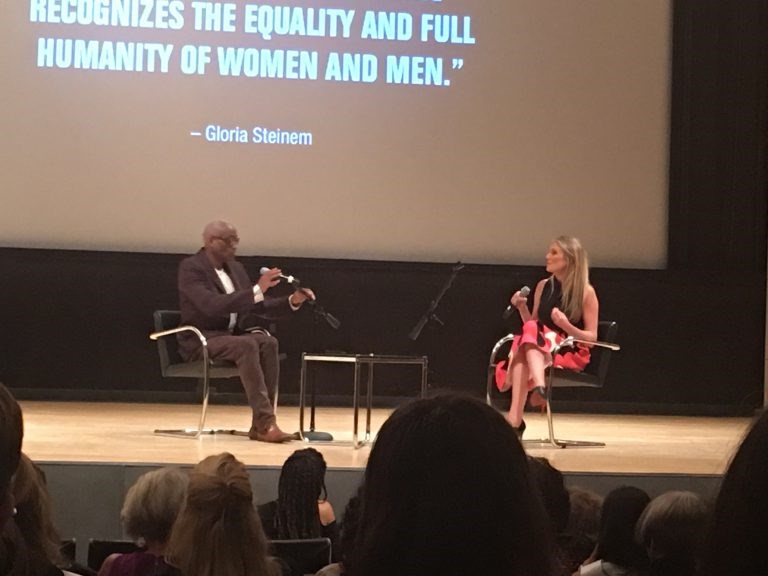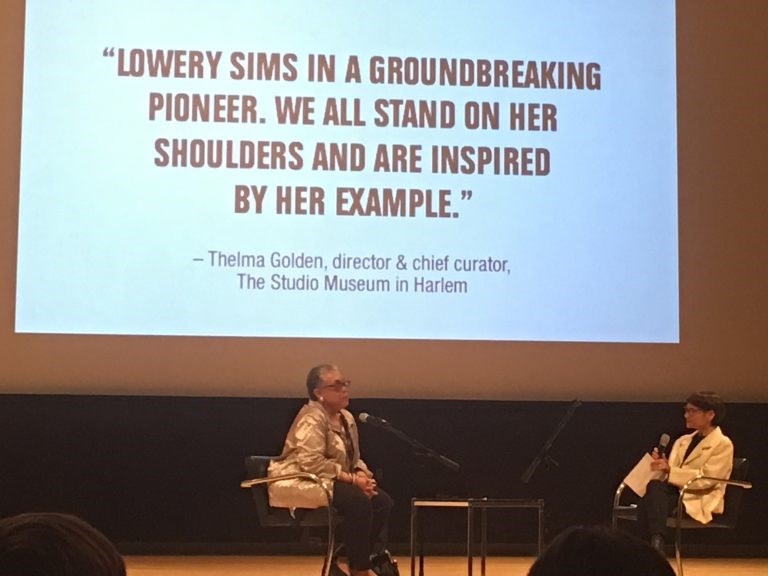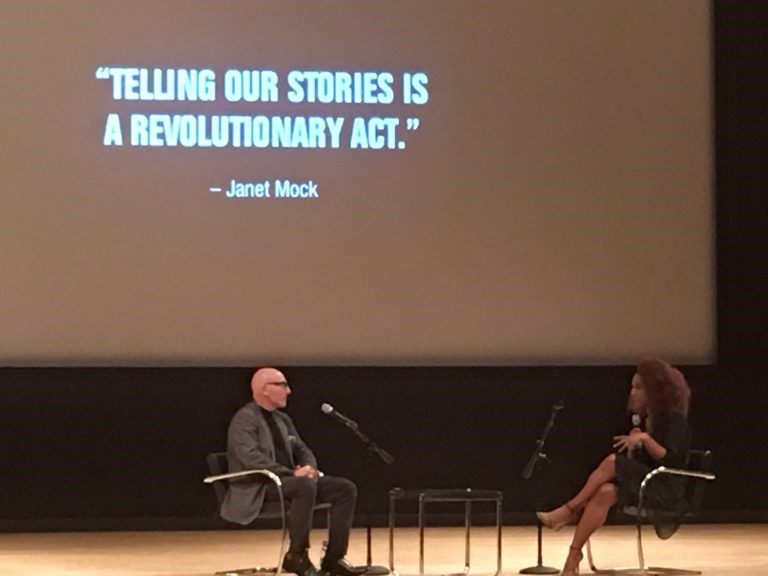
Art lovers, curators, art students, women artists, and women who support women who love the arts all filled the Brooklyn Museum's Iris and B. Gerald Cantor Auditorium Thursday morning for the Trailblazers: Women in the Arts awards, an annual celebration of fearless women who are making an impact on arts, culture and philanthropy.
This year's honorees were Sarah Arison, president of the Arison Arts Foundation, a private grant-making organization that provides support for emerging artists; Ellen Gallagher, recipient of the American Academy of Arts and Letters Awards and whose solo exhibitions have been shown at the Whitney Museum; Philanthropist and art collector Miyoung Lee, who also is a trustee of Whitney Museum; New York Times best-selling author and MSNBC host Janet Mock; and Lowery Stokes Sims, former curator at the Studio Museum in Harlem, the Metropolitan Museum of Art and curator emerita at the Museum of Arts and Design.
"We couldn't think of more deserving people to honor with this year's Women in the Arts awards, as they have forever changed the art landscape through their trailblazing devotion to the arts," said Ann Pasternak, the Shelby White and Leon Levy Director of the Brooklyn Museum. "Collectively, they represent the best of our own art ecosystem. Each in her own right is a true dynamo, and we're profoundly grateful that they've joined us today to share their life work."
This year's awards ceremony was a part of the 10-year anniversary of the Elizabeth A. Sackler Center for Feminist Art, entitled, A Year of Yes: Reimagining Feminism at the Brooklyn Museum, a year-long celebration and presentation of ten powerful exhibitions by women artists whose works provide diverse articulations of feminist expression.
The larger role of Year of Yes not only was to present a multiplicity of voices in feminist art over the last half century, but also showcase some of the innovative thinking and contemporary practices that recognize feminism as a driving force for change, said Elizabeth A. Sackler, the Center's founder and presenting host.
"It pushes back against conventional barriers to expand the cannon," said Sackler. "It is here to expand feminist thinking from its roots in the struggle for gender parity, to [address] broader social justice issues of tolerance, inclusion and diversity."

The five honorees were invited on stage individually where each took part in a 15-minute Q&A with an art colleague and studied follower of her work.
Catherine Morris, family curator of the Sackler Center, interviewed artist and honoree Ellen Gallagher, which included a slideshow of Gallagher's work and an opportunity for her to talk about some of the narratives behind her wig advertisements series-- an appropriation of grid images culled from black magazines;
Miyoung Lee discussed her evolving relationship with art, beginning as a child raised in Seoul, Korea, where artistic expression was frowned upon, up until today, where she serves on the Acquisition Committees of the Brooklyn Museum; and Lowery Stokes Sims shared her personal history growing up in New York City during a time of racial segregation and, yet, under her mother's influence, immersing herself in the city's art scene, ultimately forging inclusion by way of her own curatorial contributions.

Janet Mock, who rose to recognition as one of the first journalists to step forward publicly as a trans woman in media, said that telling the stories of trans women of color became something she championed as a way to "complicate and challenge the conversations that we're having about who we say we care for."
"Who do we choose to have compassion for, and why?" said Mock. "I think a lot of it has to come through hearing people's stories. But at the same time, realizing that the constant telling of one's story and their trauma to get people to care is also part of the problem too."

Bill T. Jones, founder of the Bill T. Jones/Arnie Zane Dance Company, asked honoree Sarah Arison about the positive trends she has noticed in art, in light of the country's movement away from arts funding.
"Really, making the arts a part of our everyday conversation; making it accessible, getting it into our communities and making sure that they have the exposure to learn about the arts," said Arison.
"People have noticed that the arts is not a part of our everyday conversation and is seen as a luxury, there's a certain ivory tower component of it, which should not be the case at all. It's a trend in the sense that it's something people are now discussing and are making an effort to move forward."



